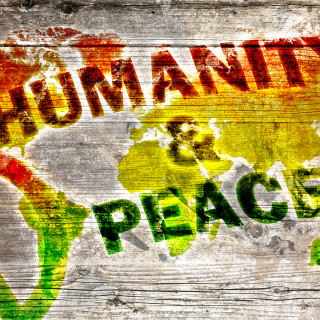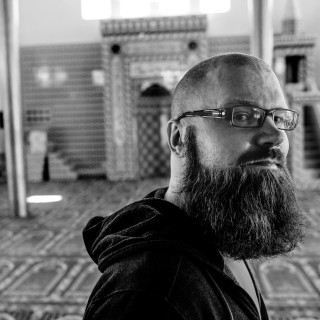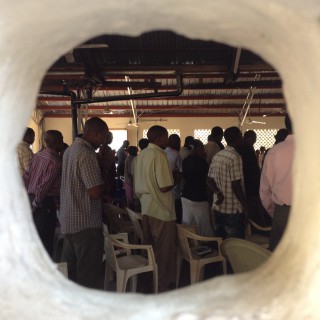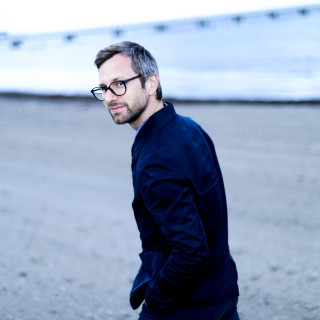Quick fixes for rebirth?
Opinion by Anne-Christine Hornborg, Professor
2014
Why would a history of religions scholar study coaching and lay therapy? My interest in healing and identity-forming practices developed during repeated field work among the indigenous Mi’kmaq people of Canada in the 1990s to carry out research on their traditions and rites.
Their rites usually addressed the group and traditions and could often appear exotic. In 2003–2007, my research came to focus even more on the practice of rituals when I was working as a postdoctoral research fellow in the interdisciplinary subject of ritual studies. Suddenly surrounded by all this ritual literature, I developed an interest in how the modern, secularised Swede creates activities for healing and well-being outside a traditional medical or Church context. Newspaper headlines and research reports in the early 21st century testified to an increase in stress and burnout in working life, especially among women, and on the internet a blossoming market of private entrepreneurs offered services and courses as certified, qualified, licensed or authorised lay therapists/coaches with training of their own devising outside the higher education sector. These formalised practices or ‘rites’ had a strong focus on the individual and promised quick solutions of healing and rebirth.
One reason for the expansion of these activities can be found in the changes of the 1990s in working life in Sweden: privatisations, demands for streamlining, profit motives and New Public Management (NPM), which were transferred from the business world to the public sector. Many women – over-represented in the health service and education sector – suffered from stress: how can washing elderly people or comforting children be streamlined? Lay therapists found a niche to offer help for ill health and burnout, and it is largely women who produce and consume these services. NPM generated coaching training to encourage ‘human capital’ and design exciting leaders. Coaching later became the solution to all problems, from unemployment (job coaches) to lack of inspiration (study coaches).
“Coaching later became the solution to all problems.”
I have referred to coaching and lay therapy as ‘a modern revival’, with ‘missionaries’, who often describe in ‘testimonies’ how they suffered from illness or low self-confidence and were healed. The activities are legitimised by reference to the latest research (the connection is sometimes more science-like than scientific, for example illness should be combated by re-programming unprocessed cell memories), methods are claimed to be old traditions (especially Asian traditions) and personal experiences are emphasised as a guarantee of quality.
A number of activities can be traced to New Age ideas about inner healing powers that are described as spirituality or ‘inner potential’, which the individual has to find with the help of the therapist or coach in order to obtain healing and success. However, the modern form of New Age has been commercialised and marketed with messages from prosperity theology: if you have the right faith you will become healthy and successful. ‘Sin’ is represented by ignorance of one’s own unrealised abilities. Can this be questioned? To answer this, we have to ask another question – is religion dangerous? In all ages, religion has been used for healing purposes and as a comfort in adversity. However, the new entrepreneurs do not wish to be defined as religious – some emphasise spirituality as a universal empowering force released from the dress of religion, others are more inclined to clothe their presentations in science-like language. Objection have been raised by psychologists who see a danger in untrained laymen promising a quick fix for depression, and issues have been raised concerning responsibility if something goes wrong and to whom complaints can be addressed. Participants in workplace courses who have expressed criticism have felt as though they are showing a negative attitude instead of acting as a ‘good employee’, while other participants take a positive view and consider that they have gained new, useful tools.
This positive reception can be explained by the role of these New Age practices as a model both of and for today’s society. Individuals feel they can relate to a model of a society with its focus on the individual and ideas of success, and as a model for such a society they give hope that the individual will be healed or achieve success. Feeling good is presented as a normative duty for the individual, who is called upon to take responsibility for his or her own wellbeing by consuming different health practices or courses. A coaching company expressed it clearly in its description of the issue of responsibility: “As a client you take responsibility for the processes and decisions”. Stress or problems in the workplace become a task for the individual to solve, and structural problems are therefore processed with demands on the individual to change and to create a new design in order to feel good and obtain success.
Photo: Kennet Ruona
Published: 2014








